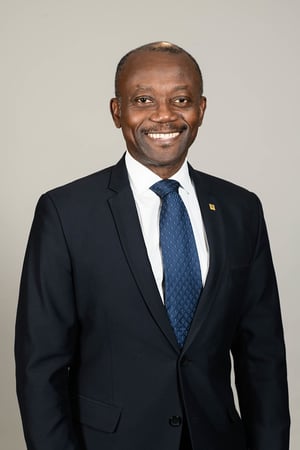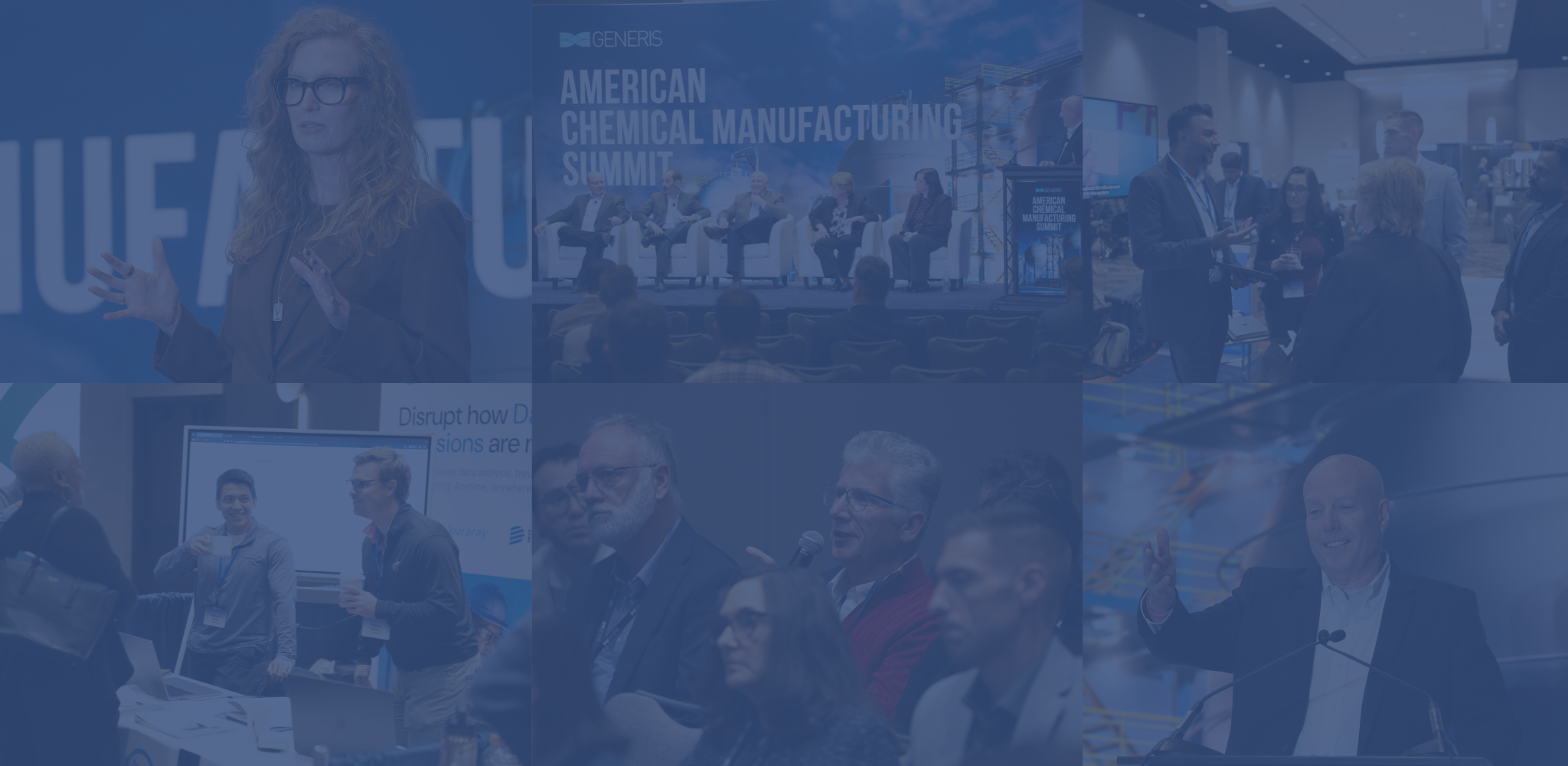In the intricate ballet of strategy, innovation, and operational efficiency, lies the world of procurement. It's a world where a well-negotiated contract can hold as much strategic weight as a new product launch, and where building resilient supplier relationships can mitigate risks that even the most meticulously crafted contingency plans cannot foresee.
Donald Pratt, Chief Procurement Officer at McCormick & Company, has not only mastered this strategic dance but thrives amidst its inherent complexities. With a career trajectory spanning engineering to the dynamic landscape of flavors, fragrances, and now the heart of the global spice industry, his perspective on procurement is as multifaceted as it is insightful.
Understanding that sustainable value creation extends far beyond the bottom line, Donald Pratt champions a procurement approach that intertwines McCormick's business objectives with the well-being of the diverse communities integral to its global supply chain.
This interview delves into his transformative approach, offering a candid glimpse into the power of strategic procurement. He reveals the key ingredients of a high-performing team capable of weathering market volatility, the pivotal role of sustainability in securing both competitive advantage and lasting impact, and the leadership lessons garnered from his own remarkable career journey.
 Could you please introduce yourself, your title, and your professional background leading up to your current role at McCormick & Company?
Could you please introduce yourself, your title, and your professional background leading up to your current role at McCormick & Company?
I'm Donald Pratt, the Chief Procurement Officer at McCormick & Company. My background is a bit varied. I have a degree in electrical engineering, but my career has taken me through several different industries.
I've worked in pharmaceuticals, flavors and fragrances, chemicals, and now spices and herbs with my current role at McCormick. My experience spans supply chain, engineering, planning, and even factory work.
My journey within procurement has been broad. I've worked in both food and non-food sectors, and I've gained experience in the end-to-end process – planning, sourcing, manufacturing, and delivery.
It's been a fulfilling journey so far, and today I find myself leading the procurement organization.
What are some common misconceptions about procurement, and how does it differ from supply chain, operations, and sourcing?
That's an interesting question. People often misunderstand the distinctions between procurement, supply chain, operations, and related functions. One common misconception is that procurement is solely about cost reduction. While cost management is important, procurement also encompasses strategic sourcing, supplier relationship management, risk mitigation, and value creation for the organization.
Another misconception is that procurement is purely administrative. Yes, administrative tasks are involved, but procurement professionals serve as strategic partners who contribute significantly to the company's goals.
Procurement focuses on acquiring goods and services, including supplier selection, negotiation, contracting, and relationship management. It's the front end of the supply chain.
Supply chain, on the other hand, is the end-to-end process of managing the flow of goods, information, and finances. It includes procurement, planning, production, logistics, distribution, and customer service. Think of procurement as a key component within the larger supply chain.
Operations refers to the day-to-day activities of running a business: manufacturing, inventory management, quality control, and facilities management.
Finally, sourcing is a subset of procurement. It involves identifying, evaluating, and selecting suppliers for specific needs. This includes research, supplier evaluation, negotiation, and contracting. Procurement encompasses sourcing as well as other broader activities.
One of the themes you'll be touching on during your keynote at the American Supply Chain Summit is the idea of building winning teams. Can you tell us some of the key components you believe are essential to building a thriving procurement team?
Assembling a high-performing team requires careful consideration of various characteristics and skills that contribute to success. To build an enduring and sustainable team – one that maintains cohesiveness and drives the business agenda even as individuals come and go – focus on the following:
- Adaptability and Resilience: The ability to handle change and overcome challenges.
- Ethical Conduct: Strong moral principles and practices.
- Strategic Thinking and Managing Ambiguity: The capacity to see the bigger picture and navigate uncertainty.

- Negotiation and Analytical Skills: Essential for sound decision-making.
- Supplier Relationship and Project Management: Crucial for successful execution.
- Results-Oriented Approach: A focus on achieving tangible outcomes.
- Continuous Learning Mindset: The drive to evolve, innovate, and break new ground.
While a high-performing team excels at execution, it's the results-focused mindset, continuous learning, and pursuit of innovation that truly set it apart. This broad agenda is a recipe for success; by aiming for these key characteristics, your team will find success within reach.
What would you say is the biggest opportunity for McCormick in terms of a sustainable sourcing strategy?
Brand reputation and market differentiation are two compelling reasons to prioritize sustainability. At McCormick, our purpose-led sustainability agenda aligns with our commitment to the UN Compact for Sustainability. We have ambitious goals in this area, and our approach is deliberate.

We prioritize understanding the impact on the communities we work with and identifying gaps to develop impactful programs. We want to be resilient, sustainable, and create measurable change. Our focus is on assessing the real-world impact of our efforts, rather than simply measuring what we would like to see.
For example, with our farmer communities, we go beyond training. We focus on what the farmers gain and how their lives are improved. Our goal is to benefit McCormick while simultaneously leaving a lasting legacy of progress in education, sanitation, health, and other vital areas for the communities we partner with.
Do you have any advice for mid-sized companies in the procurement space trying to achieve a similar level of success as McCormick on their sustainable sourcing goals?
I believe sustainability practices shouldn't fundamentally differ based on company size. At McCormick, we certainly don't claim to have all the answers. That's why we leverage partnerships – including public ones with companies like PepsiCo – to build critical mass and drive our sustainability agenda. Upstream, we work with third-party organizations like WWF or CARE in farming communities.
Upstream, we work with third-party organizations like WWF or CARE in farming communities.
These partners offer expertise, independence, and credibility, ensuring our focus remains on community benefit. As we move downstream, we collaborate with other major companies in a pre-competitive environment – and it's open to anyone.
The more partners involved, the faster we can progress towards sustainable solutions that benefit everyone.
We even work with competitors because sustainability transcends profit.
It's about preserving our planet and ensuring our actions align with true sustainability. Whether you're a startup or a large corporation, we're all in this together. Joining collaborative communities accelerates progress by sharing knowledge and best practices.
Sometimes, solutions seem complex, but collaboration simplifies things. Talking to others, attending conferences, and building networks unlock the knowledge and relationships that fuel your mission. These networks create lasting partnerships that can shape the future of sustainability for decades to come.
What would be your single piece of advice for someone looking to get into procurement, and for someone navigating the Chief Procurement Officer role?
My current role is dynamic and focuses on the evolving strategic needs of the business. My primary function is to set vision, and strategy, and drive operational excellence while managing risk and corporate governance. I also oversee portfolio management, planning, and transformation initiatives – sustainability being a key area.
Ultimately, my role is to align my team with the company's long-term growth agenda. If you aspire to a similar position, focus on developing the skills to lead a team and enable that business growth.
Despite my background in engineering, I found procurement far more captivating. Engineering can be somewhat restrictive, while procurement offers a world of possibilities for those comfortable with ambiguity. Every day is unique, with challenges, travel, and opportunities to learn how things are made. You gain a deep understanding of the company's end-to-end operations since procurement interacts with nearly every function.
It's a fast-paced, rarely dull environment. If you thrive on that energy, procurement could be a very fulfilling career path. Even those who only intend to spend a short time in procurement find themselves staying for years because of how engaging the work is!
Curious about the 2025 American Supply Chain Summit? View the agenda and speaker list here and look forward to joining us in Dallas, TX!
%20(1).png?width=773&height=112&name=Generis%20Logo%20full%20Colour%20(Large)%20(1).png)

.png)
-2.png)
